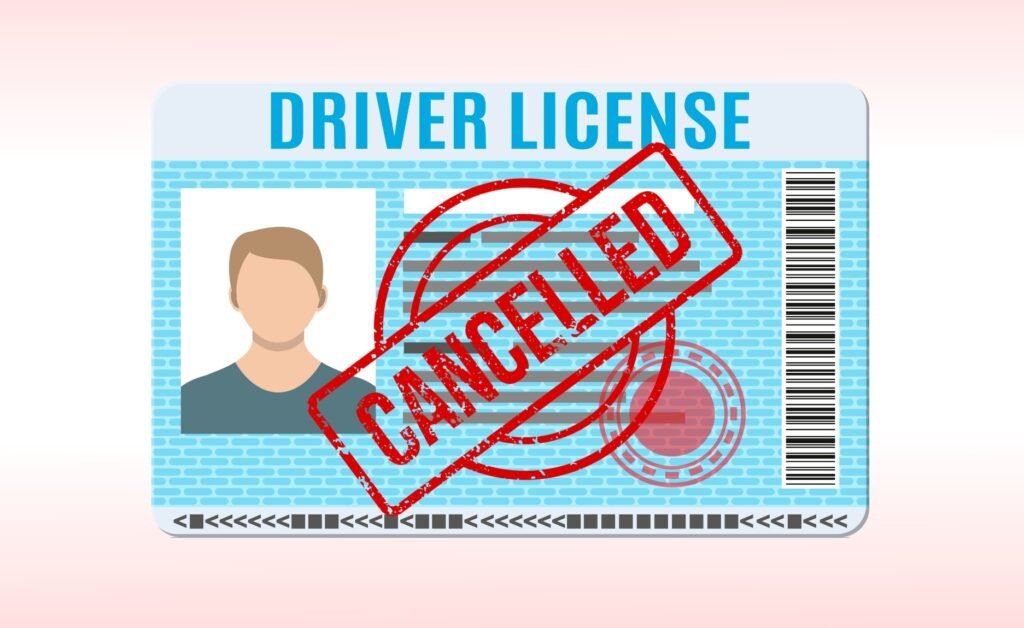Introduction
Buying a residential property in India is a significant milestone and one of the most important financial decisions you’ll make. Whether you’re a first-time homebuyer or looking to invest in real estate, the process can seem overwhelming due to legal complexities, paperwork, and financial considerations.
This guide will walk you through the step-by-step process of buying residential property in India, covering everything from budgeting and location selection to legal checks and registration. By following these steps, you can make an informed decision and ensure a smooth property purchase.
Step 1: Determine Your Budget
Why It’s Important:
Your budget is the foundation of your property search. It helps narrow down options and ensures you don’t overspend.
How to Set Your Budget:
- Assess Your Finances: Calculate your savings, income, and existing liabilities.
- Factor in Additional Costs: Include registration fees, stamp duty, GST, and maintenance charges.
- Check Loan Eligibility: If you’re taking a home loan, get pre-approved to understand how much you can borrow.
Tips:
- Aim for a property that costs no more than 4–5 times your annual income.
- Keep at least 20–30% of the property cost as a down payment.
Step 2: Choose the Right Location
Why It’s Important:
Location affects your lifestyle, property value, and future resale potential.
Factors to Consider:
- Connectivity: Proximity to workplaces, schools, hospitals, and public transport.
- Infrastructure: Availability of roads, water supply, electricity, and internet.
- Safety: Crime rates and neighborhood security.
- Future Development: Upcoming projects like metro lines or commercial hubs.
Tips:
- Visit the area at different times to assess traffic, noise, and overall ambiance.
- Research property price trends in the locality.
Step 3: Research Properties
Why It’s Important:
Thorough research helps you find a property that meets your needs and budget.
How to Research:
- Online Portals: Use platforms like MagicBricks, 99acres, and Housing.com.
- Real Estate Agents: Consult reputable agents for personalized recommendations.
- Site Visits: Inspect properties in person to assess quality and surroundings.
Tips:
- Shortlist 3–5 properties for comparison.
- Check builder reputation and past projects.
Step 4: Verify Legal Documents
Why It’s Important:
Legal verification ensures the property is free from disputes and complies with regulations.
Key Documents to Check:
- Title Deed: Confirms ownership and ensures the seller has the right to sell.
- Encumbrance Certificate: Proves the property is free from legal liabilities.
- Approved Building Plan: Ensures the construction is legal and complies with local laws.
- No Objection Certificates (NOCs): Required from authorities like the municipality and pollution board.
- Sale Agreement: Outlines terms and conditions of the sale.
Tips:
- Hire a legal expert or property lawyer to verify documents.
- Avoid properties with unclear titles or pending legal issues.
Step 5: Arrange Financing
Why It’s Important:
Most buyers rely on home loans to finance their property purchase.
Steps to Secure a Home Loan:
- Compare Lenders: Check interest rates, processing fees, and repayment terms.
- Get Pre-Approved: Understand your loan eligibility and budget.
- Submit Documents: Provide income proof, identity proof, and property details.
- Loan Disbursement: The lender will disburse the loan after verifying the property.
Tips:
- Opt for a fixed interest rate if you prefer stable EMIs.
- Maintain a good credit score to secure better loan terms.
Step 6: Negotiate the Price
Why It’s Important:
Negotiation can help you save money and get the best deal.
How to Negotiate:
- Research Market Rates: Know the average price of similar properties in the area.
- Highlight Flaws: Point out any issues with the property to justify a lower price.
- Be Polite but Firm: Negotiate respectfully but stand your ground on your budget.
Tips:
- Don’t rush into a deal; take your time to negotiate.
- Consider hiring a real estate agent to negotiate on your behalf.
Step 7: Finalize the Sale Agreement
Why It’s Important:
The sale agreement legally binds both parties to the terms of the transaction.
What to Include in the Agreement:
- Property Details: Address, size, and boundaries.
- Payment Terms: Down payment, loan details, and payment schedule.
- Possession Date: When you’ll take ownership of the property.
- Penalty Clauses: For delays or breaches of contract.
Tips:
- Review the agreement carefully before signing.
- Ensure all terms are clearly stated to avoid disputes later.
Step 8: Pay Stamp Duty and Register the Property
Why It’s Important:
Registration legally transfers ownership and makes the sale valid.
Steps to Register:
- Pay Stamp Duty: A state-specific tax based on the property value.
- Submit Documents: Provide the sale agreement, identity proof, and property documents.
- Visit the Sub-Registrar Office: Complete the registration process in person.
Tips:
- Stamp duty rates vary by state; check the applicable rate in your area.
- Keep multiple copies of the registered documents for future reference.
Step 9: Take Possession and Verify Utilities
Why It’s Important:
Taking possession ensures the property is ready for you to move in.
What to Check:
- Utilities: Ensure water, electricity, and gas connections are functional.
- Defects: Inspect the property for any structural or cosmetic issues.
- Maintenance: Confirm maintenance charges and society rules (if applicable).
Tips:
- Document any issues and request the seller to resolve them before moving in.
- Update your address for bank accounts, Aadhaar, and other official documents.
Conclusion
Buying a residential property in India is a multi-step process that requires careful planning, research, and due diligence. By following this step-by-step guide, you can navigate the complexities of property purchase with confidence and make an informed decision.
Remember, the key to a successful property purchase is patience and thoroughness. Take your time, consult experts when needed, and ensure every detail is in place before finalizing the deal.
Ready to find your dream home? Start your property search today and take the first step toward owning your perfect residential space in India!
“How to Buy Your Residential Property in India: A Step-by-Step Guide”
“Discover the complete process of buying residential property in India. Learn about budgeting, legal checks, financing, and registration in this step-by-step guide.”
Read Also
- Why You Should Apply For A Loan Against Your Property
- How to Know if Buying Property in Stourbridge is a Smart Investment
Step-By-Step Guide to Buying a Home
Buying residential property in India takes a lot of time and effort. Here are the step-by-step guide how to buy your residential property in India? Cities like Mumbai, Bangalore, Delhi, and Kolkata are very expensive for buying property. So if you want to invest your savings then always opt for cities like Jaipur, Gurugram, etc. Jaipur is very affordable to buy a home as compared to other cities in India. So choose 2 BHK flats in Jaipur for investment.
However, following this step-by-step guide can make you buy your own home and make this process smoother for you. This guide could be your checklist during the process, making you feel confident about your decision.
Find the Right Agent
An important partner in your home buying process, a real estate agent is the first person to hire. Look for an experienced and experienced agent in the locations of your choice. Choose an agent with good business acumen in today’s real estate market. Their knowledge of the localities and surroundings, and the whole home buying process, coupled with negotiation skills, can prove to be a boon to you as a home buyer.
Begin to Identify Properties
An agent, once hired, will be your partner from the start of the process. With your agent, begin to find potential property options in the locations of your choice. Make sure the properties you choose match your list of key home buying parameters. Determine the expectations of your home, such as amenities, features, and specifications. Start visiting these properties and remove the ones that don’t meet all of the key parameters you want in your home. Make a list of everything you’ve seen at each property, take photos and make videos. Sit down and put all of these items together in a shortlist.
Know-How Much Can You Afford
The price of the house or flat is a crucial parameter. Be aware that aside from the cost of ownership, there are other overheads as well. This includes brokerage fees, property tax, stamp duty, legal fees, etc. Define how you plan to invest in buying a residential property in India. Now choose the pre-selected properties and start assessing their value in the context of the selling price of those properties. Once you’ve found a property that fits your budget, start looking for a bank that offers an attractive mortgage interest rate.
Perform Legal Diligence
Whether you are buying a primary or secondary property, make sure the developer or seller has title to the property (the right to sell). If the property is in a housing company, find out all about their certificate of occupancy and security certificates. The buying process of residential property in India would also require a legal expert to read the agreement and also deal with other legal formalities.
Consider These 9 Things Before You Close The Deal:
- Check the project sanction plan and confirm that
the development is approved and fully legal. - Make sure that building regulations are
applicable in the specific area and that there are no violations on the part of
the seller. - Do not forget to take the certificates of no
objection (NOC) from the water, electricity, and land ceiling authorities. - Make sure there are no unwanted loads on the
property. - Know the payment procedure. Payment models vary
from developer to developer, and in the event of a resale, the buyer must pay a
certain percentage of the property as a down payment. On the other hand, for a
property under construction, there are three types of payment plans that you
can choose from: related to the time a buyer has to pay at certain intervals
regardless of the progress of construction; on account, the buyer must pay a
certain percentage in advance and the rest in installments; and the flex plan
which is a mix of construction linked plan and down payment plan where the
buyer pays 10 percent at the time of booking and the rest within a fixed
period. - After choosing your payment plan, secure your
home loan. Get all the documents related to property, income, and tax in one
place and apply for the home loan as soon as possible. - Once the reservation amount has been paid, make
sure you receive an award letter containing all the relevant details such as
apartment number, size, floor, and other additional charges. - A sales contract must be signed between the
property builder or seller and the home buyer. It is proof that makes the property
buyer the officially authorized owner of the home. Double-check the deed to be
sure of all of your home’s specifications. - The last and last step after all the relevant
formalities gives you access to the possession of your accommodation. It is now
your responsibility to register the deed of sale in the local municipality and
have the property registered in your name.
Why Choose Jagatpura Jaipur for First Investment?
Jagatpura in Jaipur is a developing area and has so many points of attraction for investors. You all know a little bit about Jagatpura, but Here I am come up with some facts which make Jagatpura a great residential locality. After reading the facts if you have an idea to buy 2 or 3 BHK flats in Jagatpura Jaipur then have a look at these flats by Somya Buildcon. Just choose a flat buy it and hire packers and movers.
Jagatpura is a prime location: sprunki horror Endless Fun Awaits!
- Jagatpura has so many reputed educational
institutes - Health care centers and hospitals
- Many malls and entertainment zones
- Airport at a 5-minute drive
- Akshaya Patra (a famous tourist spot in Jaipur)
and many more.




Thanks for posting, keep up the good work.